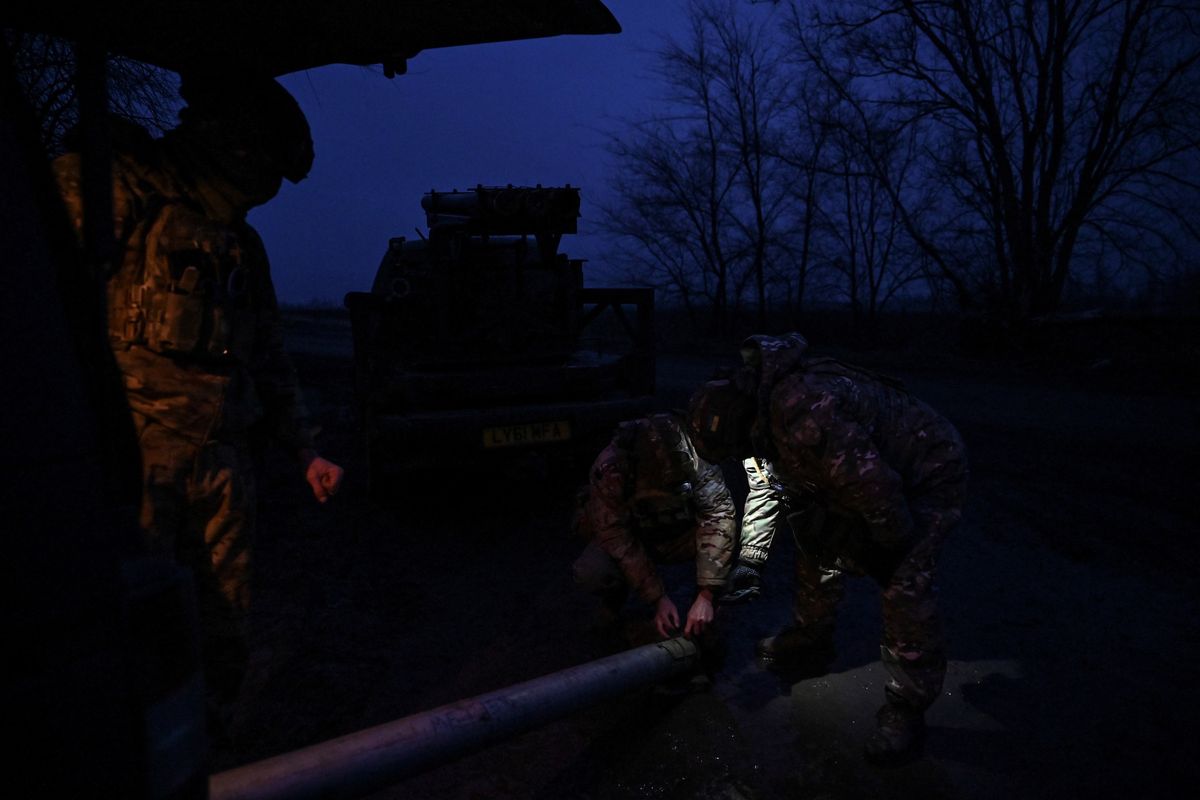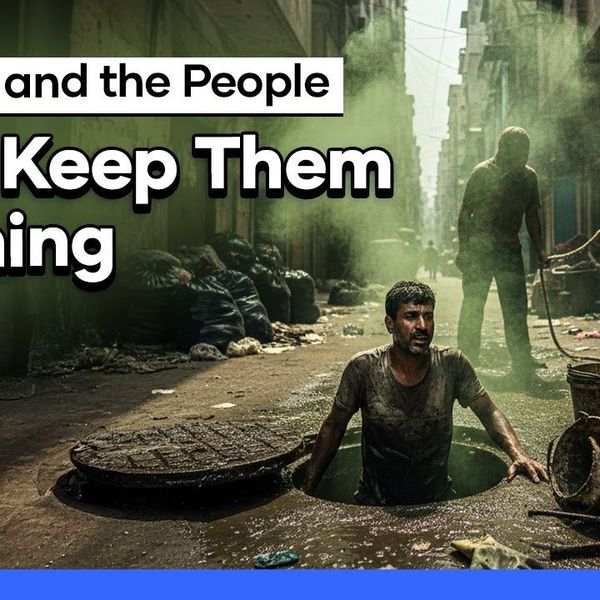The Russian billionaires whose chemical factories fuel Russia's war machine
Sanctions-hit oligarchs' firms provided 75% of materials to major munition plants
Reuters
News Agency Partner
Reuters is a leading source of news and information, delivering fact-based reporting and expert analysis on international events and trends.

Members of an artillery unit prepare a rocket amid Russia's attack on Ukraine, December 25, 2024.
Reuters
5 sanctioned billionaires' firms are main suppliers to arms factories
Eurochem shipped enough acid to make 500,000 artillery shells
Russia made 2.4M shells in 2024, got 3M from North Korea
Chemicals factories founded or owned by some of Russia's wealthiest men are supplying ingredients to plants that manufacture explosives used by Moscow's military during the war in Ukraine, an analysis of railway and financial data shows.
Reuters identified five chemical companies, in which five Western-sanctioned billionaires hold stakes, that provided more than 75% of the key chemicals shipped by rail to some of Russia's largest explosives factories from the start of the war until September this year, according to the railway data.
The news agency's analysis demonstrates for the first time how heavily factories forming part of Russia's war machine rely on these men and their companies.
The billionaires include Roman Abramovich, former owner of Chelsea Football Club, and Vagit Alekperov, who was ranked by Forbes in April as Russia's richest man with a fortune estimated at $28.6 billion.
Abramovich and Alekperov did not respond to requests for comment sent via their companies or lawyers. London-listed Evraz, in which Ambramovich holds a 28% stake, said it supplied the chemicals for "civilian use only". Lukoil, a refiner in which Alekperov retains a shareholding, said it "does not manufacture explosives or any related components".
To determine from where Russia's main munitions factories received their supplies, Reuters analysed the movement of more than 600,000 rail shipments that carried the chemicals needed to make explosives from the invasion of Ukraine in February 2022 through September 2024.
The railway data from two commercial databases in Russia was supplied to Reuters by the Open Source Centre, a British-based NGO devoted to collecting publicly-available intelligence and monitoring potential sanctions violations. It detailed the type of cargo in every railway wagon, the weight, origin and destination, and the names of the company that sent the goods and the company that received them.
The data showed that the billionaires' companies supplied vital ingredients to five explosive and gunpowder factories in Russia that are subject to Western sanctions. The plants are subsidiaries of the giant Russian state arms manufacturer and automaker Rostec.
Neither the Kremlin, the defense ministry, nor Rostec responded to Reuters' questions about civilian companies' role in supplying Russia's munitions industry.
The war in Ukraine has become an artillery duel where a shortage of high explosives available to NATO and Ukraine has allowed Russian forces to gain swathes of territory this year, according to multiple Ukraine commanders interviewed by Reuters.
Moscow is investing heavily in military production and seeking to replenish its munitions stockpiles. In 2024, Russia produced about 2.4 million artillery rounds and imported 3 million from North Korea, according to a Ukraine security official.
The five munitions plants supplied by the billionaires' companies include the massive Sverdlov facility in Dzerzhinsk. The plant is the only significant maker in Russia of the plastic explosives HMX and RDX used in artillery and missiles, according to a Ukrainian intelligence official.
Two factories run by Eurochem - founded by Russian billionaire Andrey Melnichenko - supply chemicals to Sverdlov, according to the railway data.
Eurochem is one of the world's largest manufacturers of mineral fertilizers. Its Nevinnomysskiy Nitrogen plant in southwest Russia has sent at least 38,000 metric tons of acetic acid to Sverdlov during the Ukraine war, according to a Reuters analysis of the railway data.
A second Eurochem facility, Novomoskovskiy Nitrogen sent nearly 5,000 metric tons of nitric acid to Sverdlov in the same period, the railway data showed.
According to Reuters calculations, based on scientific literature and reviewed by an explosives expert, 5,000 tons of nitric acid could be used to make 3,000 tons of RDX, enough to fill 500,000 large-caliber artillery shells.
Another fertilizer giant, Uralchem, founded by sanctioned billionaire Dmitry Mazepin, provided Sverdlov more than 27,000 metric tons of ammonium nitrate, the railway data showed. Ammonium nitrate is used to make HMX and RDX, and is also mixed with TNT to produce an explosive called Amatol. Uralchem also supplied 6,000 metric tons of nitric acid from its nitrogen fertilizer plant in Berezniki to Sverdlov, the data showed.
Two other state-owned munitions plants, the Tambov Gunpowder Plant and Kazan Gunpowder Plant, received shipments of acids from Uralchem, the rail data showed.
Asked in detail about the shipments, Uralchem said the information was "incorrect". It did not provide further details or explanation.
A steel plant in Siberia owned by London-listed Evraz supplied 5,000 metric tons of toluene – an ingredient for TNT - to the Biysk Oleum Plant, according to the rail data. Evraz was sanctioned in 2022 by the British government which said it supplied steel to the Russian military.
In April 2024, the government of Altai region, which includes the city of Biysk, listed the plant among manufacturers that "significantly increased" their 2023 production in fulfilment of state defense procurement contracts.










Comments
See what people are discussing